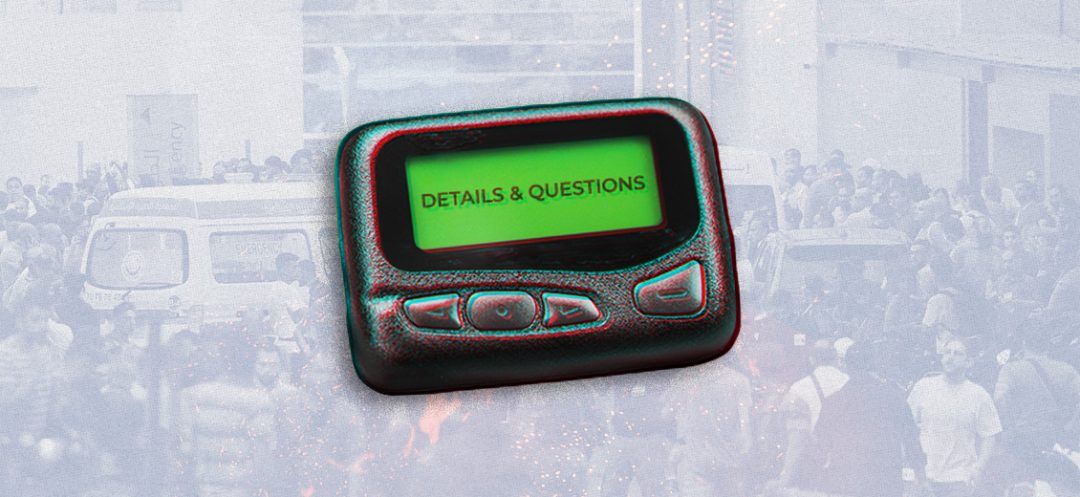- Home
- War in the Middle East
- The Pager Operation: Key Details and Pressing Questions

Without firing a single shot, Israel managed to remove thousands of Hezbollah fighters from the battlefield in southern Lebanon. Some will be out of action for days, others for months, while some may never return to combat or their duties due to the severity of their injuries, which could permanently prevent them from resuming their roles.
Experts and analysts in the intelligence community agree that Israel's operation is unprecedented in modern history. It is expected to become a major case study, with its meticulous planning and execution potentially featured in literature and cinema, and offering insights for other intelligence agencies that might consider employing similar tactics against their adversaries. Noteworthy for its advanced technology and precision, the operation's timing remains a subject of debate.
In this operation, thousands of pagers exploded along with their carriers, as if Israel had secretly rigged these individuals. In reality, the people were unknowingly transporting explosive devices in their homes, vehicles, or workplaces. The operator waited for the right moment or political directive to detonate them, resulting in numerous deaths and injuries.
The key aspect of this operation is understanding the detonation mechanism.
Reports suggest that the server that processed the messages was compromised. The hackers sent messages that overwhelmed the devices, leading to overheating of the lithium batteries, causing them to explode.
An additional question arises: Were the explosions solely due to battery malfunctions, or were the devices deliberately rigged with explosives?
According to reports, it is improbable that the small lithium batteries in these devices could have caused the significant damage witnessed, such as fatalities and severe injuries. This leads to the conclusion that the devices were likely rigged with explosives. Experts suggest that approximately 20 grams of explosives were inserted into each device. Nonetheless, the exact method of remote detonation is uncertain, leaving questions about whether the battery overheating acted as the trigger or if another mechanism was employed.
It is worth noting that verifying the presence of explosives in these devices is relatively simple. Security agencies or Hezbollah can conduct laboratory tests on the remains of the exploded devices to determine if they contained explosive residues.
Following Hezbollah's entry into conflict with Israel on October 8 last year, breaches in their communication networks have emerged as a critical issue, especially in light of the substantial losses among their members and leadership. One notable instance involves Fouad Shokr, who allegedly fell into a trap after receiving a deceptive phone call. Consequently, Hezbollah has discontinued the use of cell phones and taken down street surveillance cameras, considering them compromised. The party’s security apparatus is now searching for secure communication devices to supplement their existing landline network. They have identified pagers as a potential solution and have decided to increase their use, based on information suggesting they had been used previously.
In this context, reports indicate that a shipment of 5,000 devices reached Hezbollah several months ago and was distributed among its members and leaders across various military and security units. These devices bear the logo of the Taiwanese company Gold Apollo. However, Gold Apollo has denied manufacturing these devices, revealing that a European company, specifically BAC in Hungary, holds a license from the Taiwanese firm to produce the AR-924 model. Furthermore, there are no records of any such devices being shipped from Taiwan to Lebanon.
Here lies the mystery: how did the Israelis find out that the shipment was intended for Hezbollah, and how did they manage to rig it with explosives?
Hezbollah does not purchase these devices directly; instead, it relies on third parties, or even multiple intermediaries, to obscure the final destination, safeguarding the deal from cancellation or security breaches. However, this time, Hezbollah’s precautions appear to have failed. Reports indicate that Israeli operatives uncovered the intended Hezbollah-bound devices and allegedly sabotaged them by embedding explosives, compromising their security and triggering their detonation. Nevertheless, certain knowledgeable sources assert that Hezbollah typically conducts rigorous safety checks before accepting sensitive equipment. The lingering question persists: did the Israelis succeed in outwitting Hezbollah by planting explosives that went undetected?
This Hollywood-style operation has sparked numerous questions, and uncovering clear answers may take years.
Read more



Comments